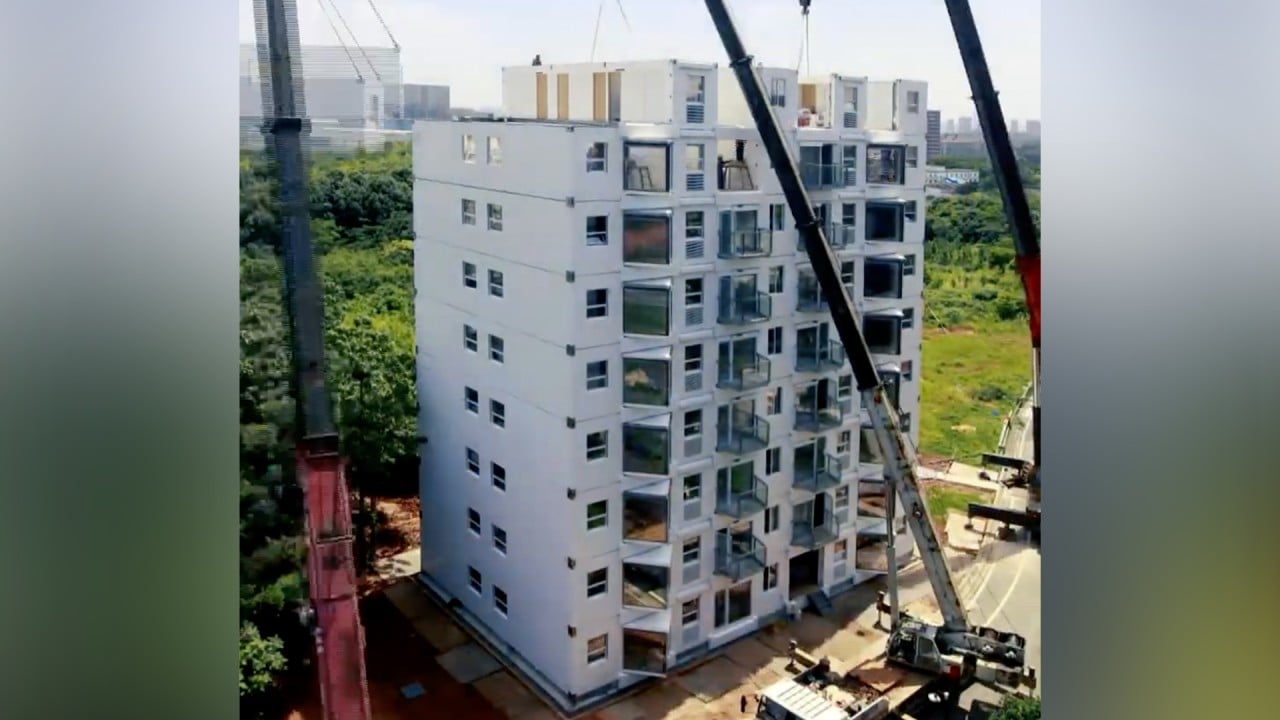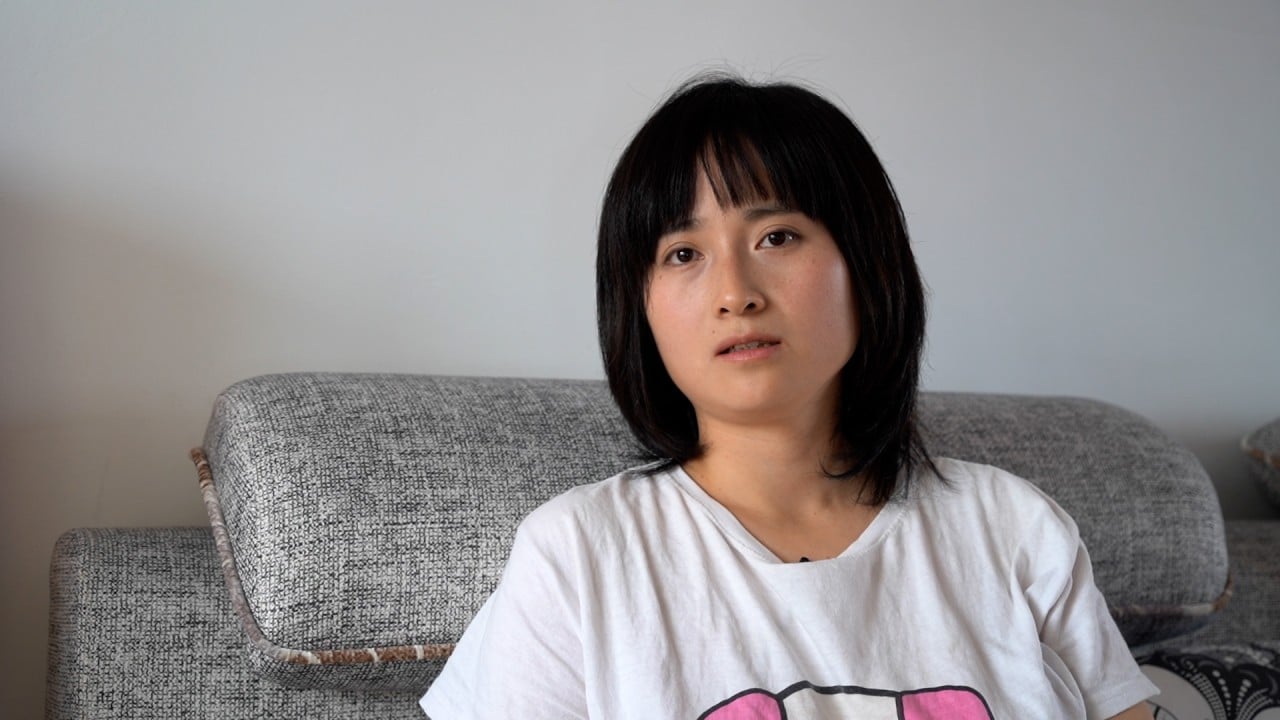
Chinese developers to focus on debt reduction until 2023 to meet ‘three red lines’ deadline
- China introduced the ‘three red lines’ deleveraging campaign in August last year to improve the financial health of the real estate sector
- China Resources Land and Logan Group have successfully met all three criteria, according to Beike Research Institute
With most developers reducing borrowings and trimming debt, market observers also expect mainland Chinese real estate companies to be less aggressive in their expansion plans as their profit margins have been squeezed by a series of cooling measures to curb price growth.
“Deleveraging will certainly be a focus among developers who are worried about being targeted by regulators,” said Alvin Cheung Chi-wan, associate director at Prudential Brokerage. Chinese developers would also like to avoid the fate that has befallen China Evergrande, he added.

01:49
10-storey residential building in China constructed in a day
Those who flunked the test, including China Evergrande, have until 2023 to meet these criteria as policymakers seek to control house prices, manage land markets and rein in lending to the sector. Real estate companies that successfully fulfil all three requirements will be tagged “green”.
The mainland’s largest developer by sales also reduced its net debt ratio to 49.7 per cent from 55.6 per cent a year ago. However, its liability-to-asset ratio stands at 78.5 per cent, according to Beike Research Institute’s post-results analysis of Chinese property firms.
Country Garden’s total loans stood at 324.24 billion yuan on June 30, a decline of 5.2 per cent from a year ago. The group continues to optimise its borrowing structure by exchanging expensive debts with lower cost options, it said after the results.
This year, Country Garden pre-paid US$1.2 billion of bonds with interest rates of between 4.75 per cent and 7.125 per cent with senior notes carrying interest rates of 2.7 per cent to 3.3 per cent.
This has resulted in its debts falling to nearly 570 billion yuan as of end June from a peak of 870 billion yuan in 2020. While its net debt-to-equity ratio has dropped below 100 per cent, it still exceeds two other thresholds.
“China Evergrande is some way off from meeting [all] the three red lines, and hence may have been under closer scrutiny from regulators than other developers,” said Adrian Cheng, senior director of Asia-Pacific corporates team at Fitch Ratings.

08:07
Cheap housing but few economic opportunities for young Chinese in city along Russian border
China Resources Land and Logan Group, which announced their interim results on Wednesday, had moved into the “green” zone, according to Beike’s analysis.
China Resources Land, which reported an 18.3 per cent rise in first-half core interim profit to 9.91 billion yuan, had a debt-to-asset ratio of 60.9 per cent, net gearing ratio of 37.4 per cent and cash-to-short-term debt of 2.7 times, Beike said.
Logan Group, which saw its core earnings increase 4.6 per cent to 5.58 billion yuan in the first half, had a debt-to-asset ratio of 69 per cent, net gearing of 60.8 per cent and cash-to-short-term debt of 1.85 times. Beike said.
While Chinese builders have been focusing on cutting debt, their profit margins have been eroded by selling homes at discounts to shore up cash flows.
Guangzhou R&F Properties, which cut its total debt by 5 per cent to 331.8 billion yuan as of end June, said gross profit margins declined to 22.3 per cent, from 33.5 per cent a year ago because of adjustments to the average selling price to speed up sales. Its net profit fell 19 per cent to 3.18 billion yuan in the six months to June 30.
Rival China Vanke reported an 11.7 per cent decline in net income to 11.05 billion yuan in the first half, as gross margin from property development and related assets shrunk to 18 per cent from 24 per cent, according to its filing late Sunday.
“We believe the period of fast expansion seen in the past few years is coming to an end, as the government is focused on controlling the growth of the sector and the risk of high leverage spilling over to the overall financial system,” said Fitch Ratings’ Cheng.

